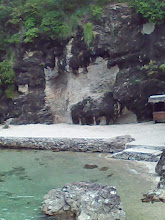Contrary to popular opinion, the martial art Karate was not invented in China. Rather, it has its origins in the island of Okinawa in Japan. The word "Karate" means the "empty hand" or the "Chinese hand", and it has been given this name because it involves a rapid use of hands and legs in an extreme close combat.
It was sometime in the sixteenth century that Chinese Kung Fu fighters experimented around with their styles and formulated the "te" technique ("Te" means hand). The art grew in China and evolved from a very rough and simple fighting style into a hard, close-combat style.
Around the late nineteenth century, Gichin Funakoshi, a famous martial arts practitioner from Japan, blended new moves into the "Te" style and displayed his art to the Japanese martial arts masters in early twentieth century. This was the beginning of Karate, as we know it.
Karate kicked off with the original Okinawa style; later on, the Japanese patented their own styles, which are now appropriately called Japanese styles of Karate. With time, many karate schools all cross the world began naming their Karate after their school's or master's name, giving birth to many sub-styles.
The original style - known as the Okinawa style - is a very hard and external style. It employs circular means of defense while its attack is linear in nature. The physical condition is extremely rigorous, as compared to the Japanese style of Karate. The Japanese style of Karate is more stylistic and its movements are linear in both defense and offense.
Some of the important Karate sub-styles are: (i) Wado-Ryu style, which combines JiuJitsu movements with Okinawa karate techniques, and (ii) Uechi-Ryu style, which blends Okinawa Karate with Chinese martial arts tactics. The Uechi-Ryu style appears more Chinese than Japanese though it is a blend of both the cultures.
As you know, Karate is a fast-paced martial art that involves electric movements of the hands and legs. So, you need to ensure that you are attired in a comfortable Karate uniform.
As Karate involves close combat and can be lethal, you will also need to protect your head and groin by strapping on a head guard and groin protector, respectively. Arm, chest and leg guards are available too, and so are karate mitts and shin protectors. And, of course, mouth guards can be considered too, just in case.
To train for Karate, you will need jump ropes, breakable boards, a Karate training board and a Karate training system. To perform Karate exercises, you will need leg and body stretchers, mats, water training bags, punching bags and pull-up and push-up bars.
And, finally, before you go out there to practice Karate, do not forget to plug in a first aid kit in your bag.
Karate not only keeps your body fit, it also strengthens your mind and enhances your concentration. Only thing, you must learn to respect it and practice it seriously as an art.
September 29, 2009
By Alex Olson
Alex Olson is a professional journalist. Being interested in martial arts, she wrote some highly popular articles about karate and many more.
It was sometime in the sixteenth century that Chinese Kung Fu fighters experimented around with their styles and formulated the "te" technique ("Te" means hand). The art grew in China and evolved from a very rough and simple fighting style into a hard, close-combat style.
Around the late nineteenth century, Gichin Funakoshi, a famous martial arts practitioner from Japan, blended new moves into the "Te" style and displayed his art to the Japanese martial arts masters in early twentieth century. This was the beginning of Karate, as we know it.
Karate kicked off with the original Okinawa style; later on, the Japanese patented their own styles, which are now appropriately called Japanese styles of Karate. With time, many karate schools all cross the world began naming their Karate after their school's or master's name, giving birth to many sub-styles.
The original style - known as the Okinawa style - is a very hard and external style. It employs circular means of defense while its attack is linear in nature. The physical condition is extremely rigorous, as compared to the Japanese style of Karate. The Japanese style of Karate is more stylistic and its movements are linear in both defense and offense.
Some of the important Karate sub-styles are: (i) Wado-Ryu style, which combines JiuJitsu movements with Okinawa karate techniques, and (ii) Uechi-Ryu style, which blends Okinawa Karate with Chinese martial arts tactics. The Uechi-Ryu style appears more Chinese than Japanese though it is a blend of both the cultures.
As you know, Karate is a fast-paced martial art that involves electric movements of the hands and legs. So, you need to ensure that you are attired in a comfortable Karate uniform.
As Karate involves close combat and can be lethal, you will also need to protect your head and groin by strapping on a head guard and groin protector, respectively. Arm, chest and leg guards are available too, and so are karate mitts and shin protectors. And, of course, mouth guards can be considered too, just in case.
To train for Karate, you will need jump ropes, breakable boards, a Karate training board and a Karate training system. To perform Karate exercises, you will need leg and body stretchers, mats, water training bags, punching bags and pull-up and push-up bars.
And, finally, before you go out there to practice Karate, do not forget to plug in a first aid kit in your bag.
Karate not only keeps your body fit, it also strengthens your mind and enhances your concentration. Only thing, you must learn to respect it and practice it seriously as an art.
September 29, 2009
By Alex Olson
Alex Olson is a professional journalist. Being interested in martial arts, she wrote some highly popular articles about karate and many more.

No comments:
Post a Comment